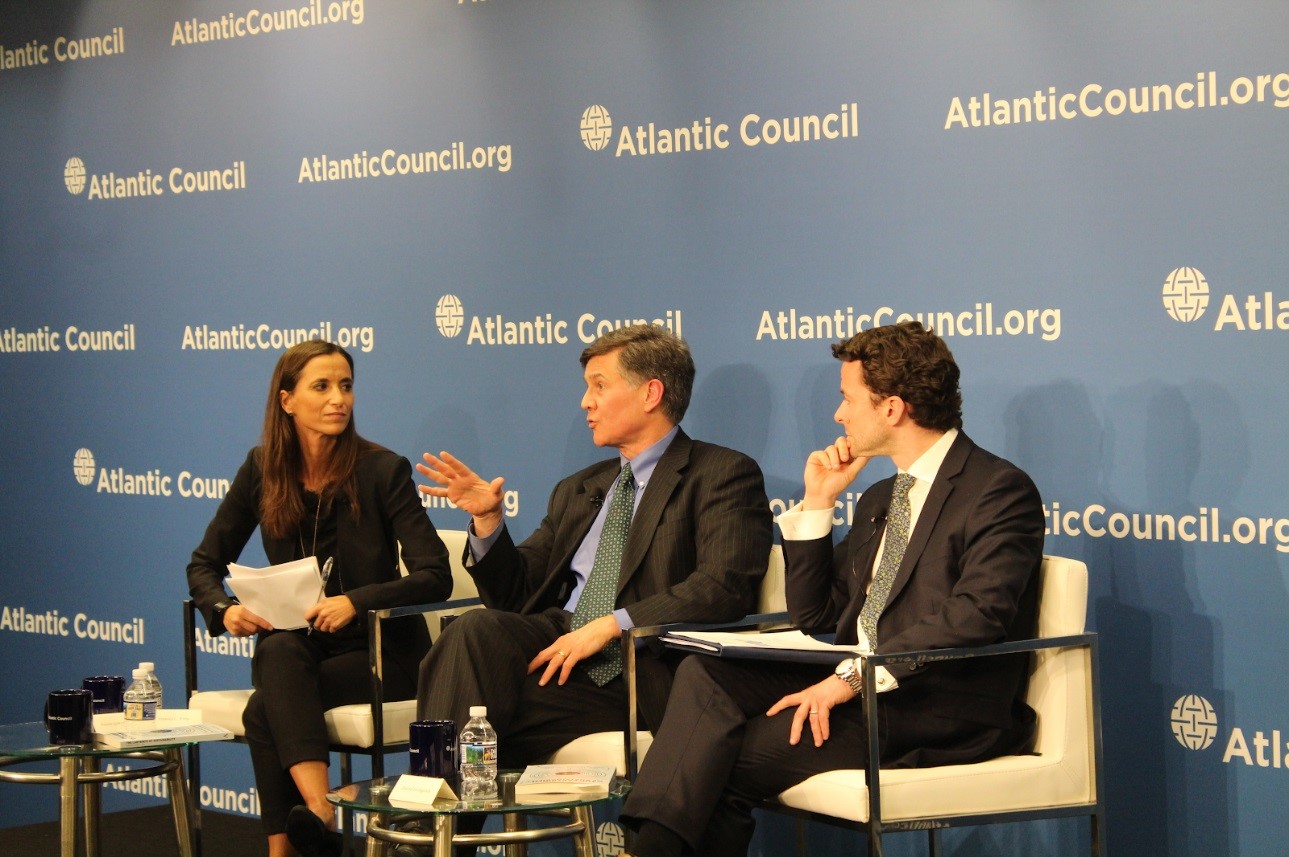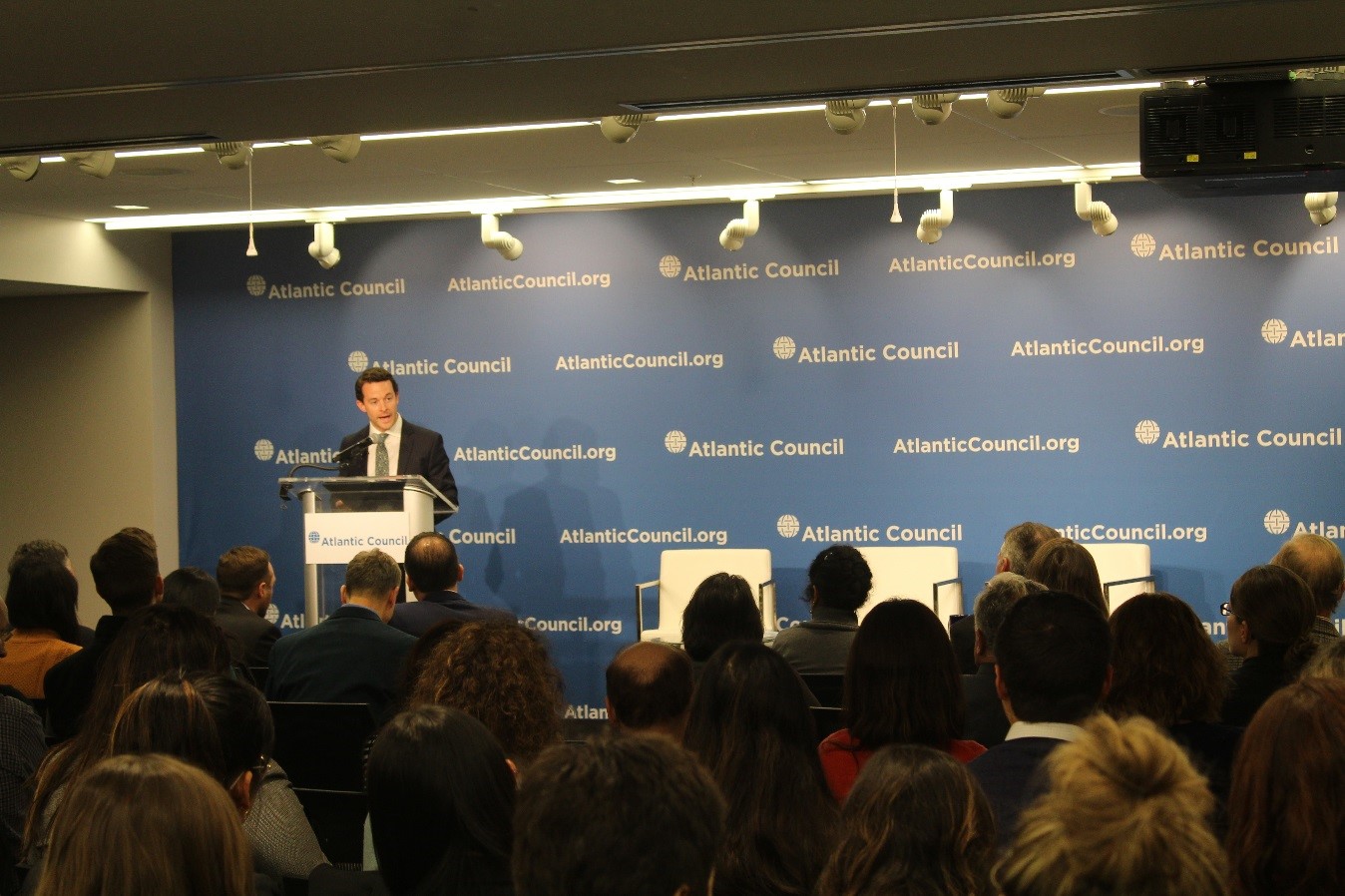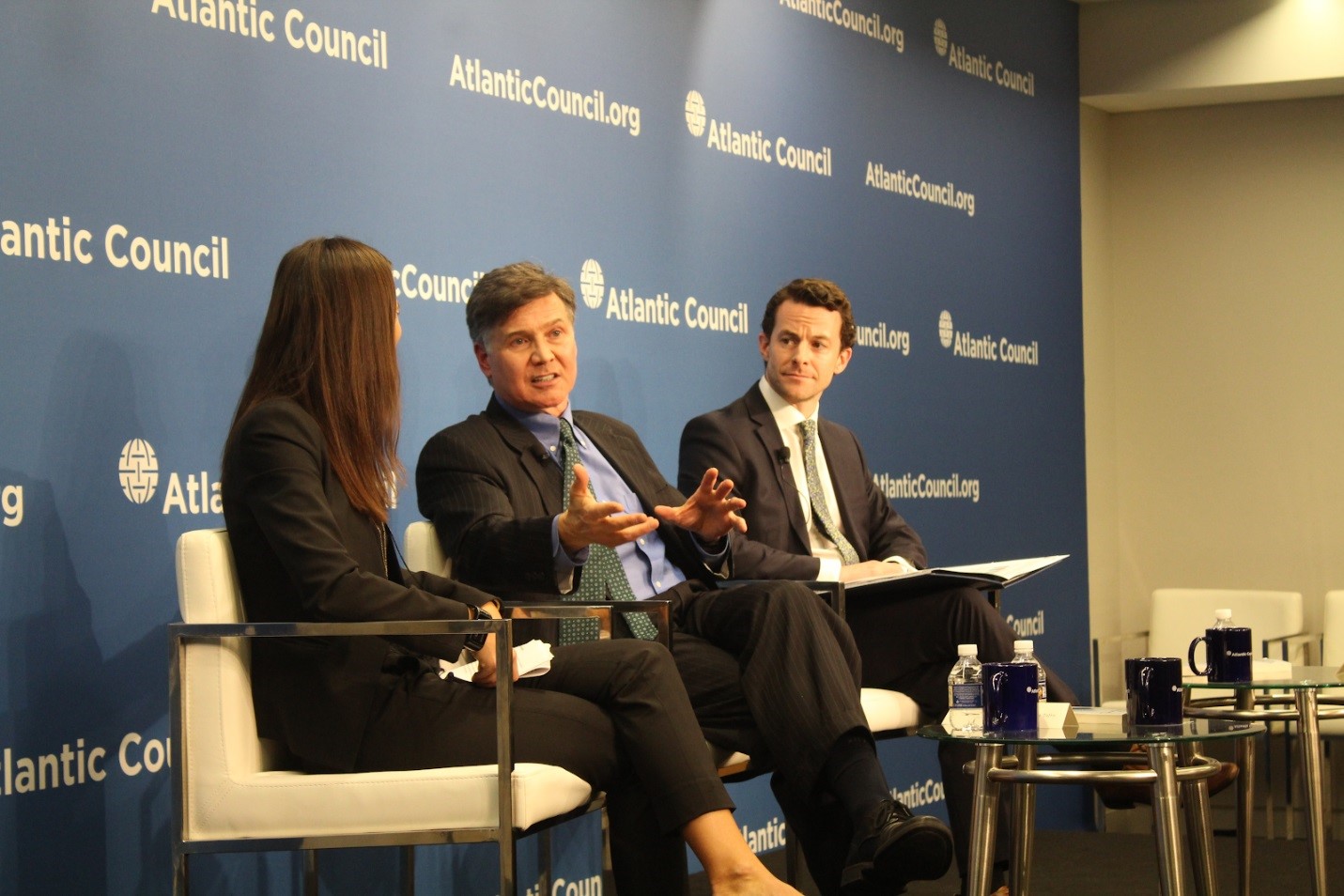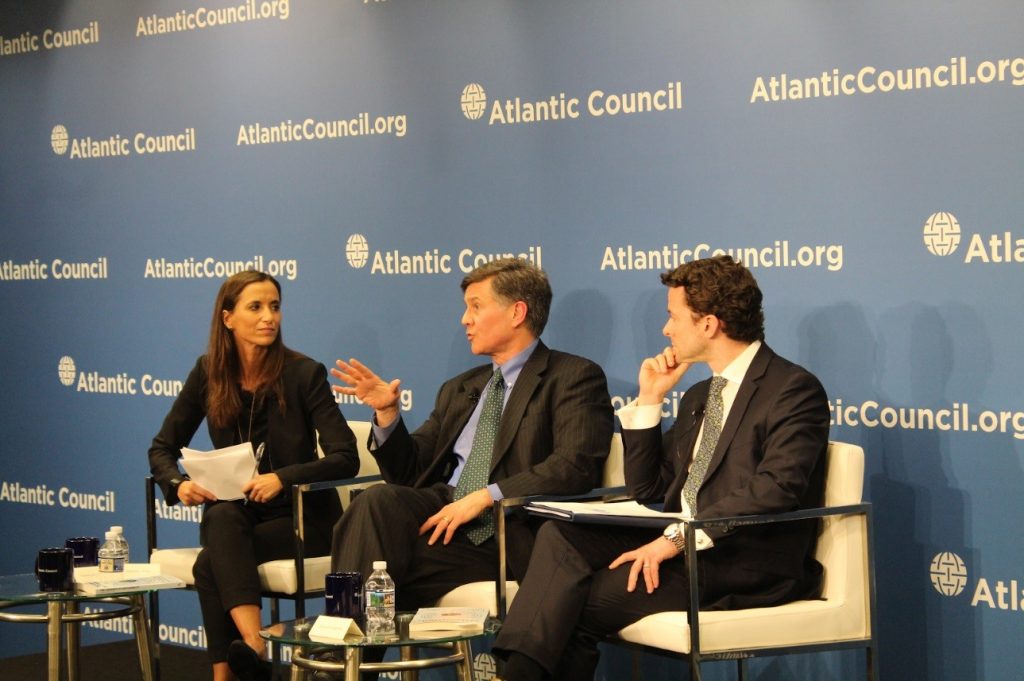
On February 12, 2019, the Atlantic Council’s Global Energy Center and Adrienne Arsht Latin America Center hosted Yale Hillhouse Professor of Environmental Law and Policy Daniel C. Esty for a conversation about corporate sustainability in Latin America. Esty’s recently published book, The Labyrinth of Sustainability: Green Business Lessons from Latin American Corporate Leaders, set the context for the discussion, with a look at a collection of case studies that demonstrated Latin America’s unique stage for sustainable corporate investments. Adrienne Arsht Latin America Center Deputy Director Paula Garcia Tufro moderated, with Global Energy Center Deputy Director for Climate and Advanced Energy David Livingston joining the conversation.
The event began with brief welcome remarks from Livingston, who quoted Italian author Giuseppe Tomasi di Lampedusa, saying, “if we want things to stay as they are, things will have to change.” Livingston used this quote to highlight the paradoxical nature of the sustainability challenge today: in order to prevent changes to the environment that may very well be irreversible, there must be a wholesale change in the ways that business is conducted.

Livingston gives introductory remarks.
Garcia Tufro then set the stage for the conversation as she addressed monumental climate and sustainability actions of the last several years, highlighting the Paris Climate Agreement, the 2030 Agenda for Sustainable Development, and the Addis Ababa Action Agenda on Financing for Development. These brought together individuals from a variety of sectors, not just those in the environmental space, to discuss and form frameworks for developing a sustainable future. For Esty, while these accords showed promise of governmental action globally to address climate change and sustainability issues, the top-down strategy focusing on government policy has not created enough progress. Rather than relying exclusively on this, a bottom-up approach is also needed, with individual city governments and corporations leading the charge.
Livingston and Esty agreed that the private sector can no longer rely on outdated approaches to corporate social responsibility. Esty suggested that, instead, companies have a social license to operate and that stakeholders, not just shareholders, must be considered. The private sector needs to bring considerations of sustainability into their day-to-day strategies. The case studies in Esty’s book highlight the corporate leaders in Latin America who have managed to do this and, subsequently, profit from these decisions.
Livingston then went on to discuss the sustainability measures in Latin America, highlighting that even before the Paris Agreement, the region already had some climate and sustainability policy frameworks in place. Mentioning that Latin Americans are more attentive to both corporate corruption and sustainable outcomes, Esty again emphasized the need for external forces pressuring these industries to be aware of those they impact. This corporate action has led to new energy policy not just focusing on decarbonization, but also on building jobs and communities.

Panelists Esty and Livingston in discussion with moderator Garcia Tufro.
Questions from the audience often alluded to the timeline of sustainability efforts in Latin America. Esty made it clear that corporate sustainability is not a short-term activity—it takes time to see a difference and progress has to be measured in increments that make sense. Both Esty and Livingston recognized that while the public and private sectors have not been perfect in regard to environmental issues, they have at least begun to take steps to address these—“more sustainable” is better than “not sustainable.”
To watch the conversation, check out the webcast here.
Image: (L to R) Adrienne Arsht Latin America Center Deputy Director Paula Garcia Tufro, Yale Hillhouse Professor of Environmental Law and Policy Daniel C. Esty, and Global Energy Center Deputy Director for Climate and Advanced Energy David Livingston discuss corporate sustainability in Latin America at the Atlantic Council event.
